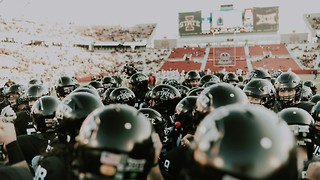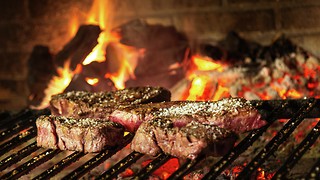The poshness problem
Neria Aylward with a North American perspective on how resenting the “posh” won’t tackle class divisions

When I told people that I was moving the UK for university, I was told to expect “delayed” culture shock. I had no idea what they meant, and I also didn’t believe them. Sure enough, I proved everyone wrong for the first two weeks. It’s just like Canada! They just drive on the other side of the road! Besides the subpar customer service (apparently the customer isn’t always right) everything was dandy. But when culture shock hit, it was in the most stereotypical of packages – the word “posh.”
The way that otherwise nice, normal-seeming people just dropped “posh” as a descriptive of someone they had just met made me deeply uncomfortable. The sentiment was shared between other Canadians and especially with Americans. We all size each other up during Freshers’ Week, but class is not something that North Americans will admit to even considering – that’s the whole point of the American Dream. Class is an economic classification, not one that you can tell by an accent. This means the upper echelons of society are theoretically open to anyone and everyone. The idea of our prospects being pigeonholed in the space of a single encounter is repugnant to our very sense of identity.
“Posh” seems to be a more all-encompassing adjective. It carries lifestyle connotations that come straight out of a Hollywood movie. As it was explained to me, the Queen is the poshest lady around. This is the crucial difference between North American and British conceptions of class. North Americans admit that class exists, but that its purely economic nature supposedly makes it fluid from one generation to the next. The only potential indicator is how much stuff someone has, but conspicuous consumption can be illusory in a society steeped in debt. This contrasts strikingly with “poshness,” which is as much about fitting the stereotypes of old money as having money at all.
Canada and the United States are new countries, in the greater scheme of things. Sense of identity in America, especially, is based on a rejection of European notions of hierarchy, as embodied in the American constitution. Old money had no place in a new country, but things have definitely changed. Despite the American knee-jerk reaction to any mention of class, the US consistently ties or exceeds Britain as the least socially mobile among comparable high-income countries. While Denmark, Finland, and Canada score high in terms of social mobility, the United Kingdom and United States emerge as markedly stratified.
Britain and the United States are neck and neck in terms of generational income elasticities, at 0.50 and 0.47 respectively. This means that for each one per cent increase in a British man’s salary, his son’s expected salary increases by 0.5 per cent. Beyond the glaring gender issues with this statistic, it is illustrative of the head start kids get from having well-off parents – which is not a given in places like Denmark (income elasticity 0.15). Being “posh” has a lot to do with private education, which is advantageous when applying to elite universities. In the United States, despite affirmative action policies to accept applicants from disadvantaged backgrounds, 15 per cent of freshmen to the most selective universities are white kids who don’t meet the university’s admission standards.
Despite differing levels of class acknowledgment, both Britain and the United States share a common discourse. Discussions of class often revolve around the elite, which according to a recent survey only comprise six per cent of British society. Likewise, the trope of the “one per cent” masks another (and to me, more important) facet of inequality – that low social mobility hurts the lowest income brackets the most, both quantitatively and qualitatively. The issue is reduced to the elite and the rest of us, most of who fall comfortably in the middle class. It is important to note, however, that in the US, 42 per cent of men in the bottom fifth of earnings stay there, and in Britain, 30 per cent do. These are two sides of the same issue, but while access may be guarded to the upper circles of society, entry into them is not as vital in terms of basic requirements as a movement from the bottom income bracket to the second lowest. The differences in quality of life are the largest at the lowest levels of the social ladder – although being bumped from Harvard by a legacy student is certainly problematic, a second-rate university degree is better than none.
Driven by newfound insecurity about my place in British society, I took an online BBC quiz. I was named a member of the “technical middle class,” which is pretty irrelevant since I’m not British, have no income, and am not even close to the average age of 56. Despite all the caveats, I was still pretty offended. It is reflective of the prevailing paradigm of class that entry into the top six per cent, the stereotypical elite, is more contentious than the social immobility of the bottom 15 per cent (the lowest classification). While “posh” makes us North Americans uncomfortable, silence about our own brand of class division is just as toxic. Maybe it’s time for another type of class discourse in Britain and North America. Instead of resenting a minority elite, focus needs to shift to the lowest income brackets – the true victims of social stratification.
 Science / Who gets to stay cool in Cambridge?7 September 2025
Science / Who gets to stay cool in Cambridge?7 September 2025 News / Government allows Gazan students to take up university places6 September 2025
News / Government allows Gazan students to take up university places6 September 2025 News / Tompkins Table 2025: Trinity widens gap on Christ’s19 August 2025
News / Tompkins Table 2025: Trinity widens gap on Christ’s19 August 2025 News / Two pro-Palestine demonstrations held in past week8 September 2025
News / Two pro-Palestine demonstrations held in past week8 September 2025 Lifestyle / The summer I tried learning Hindi8 September 2025
Lifestyle / The summer I tried learning Hindi8 September 2025









